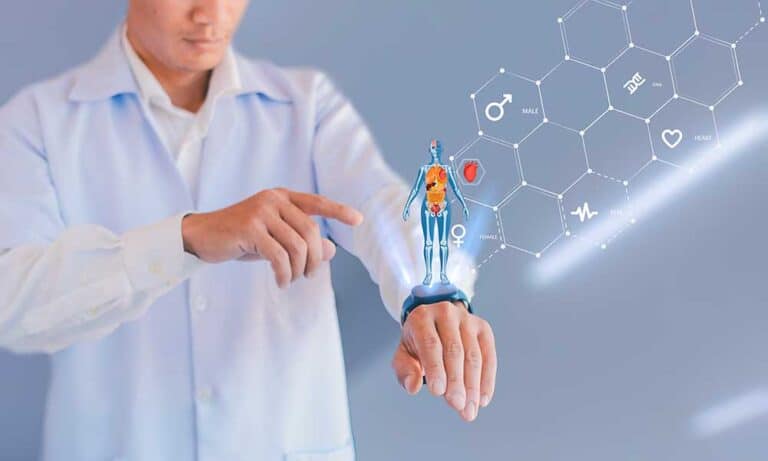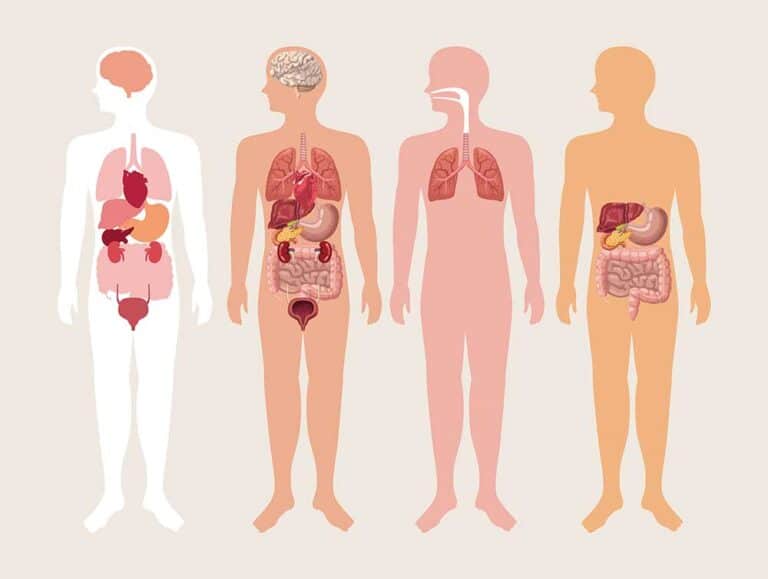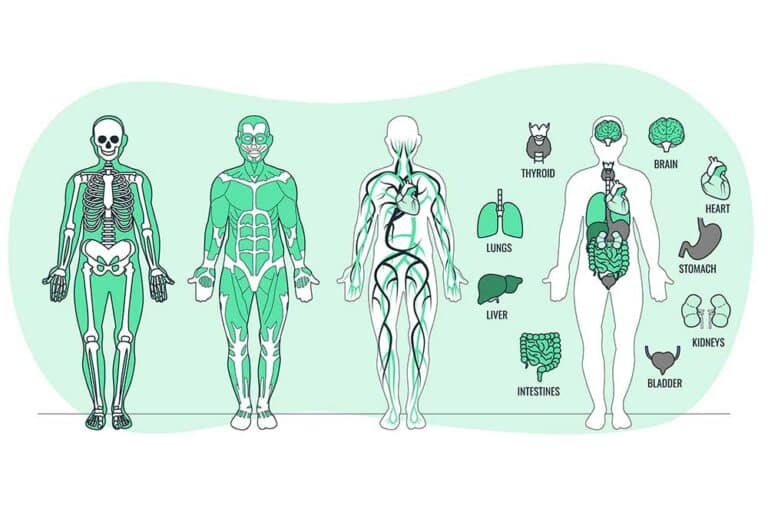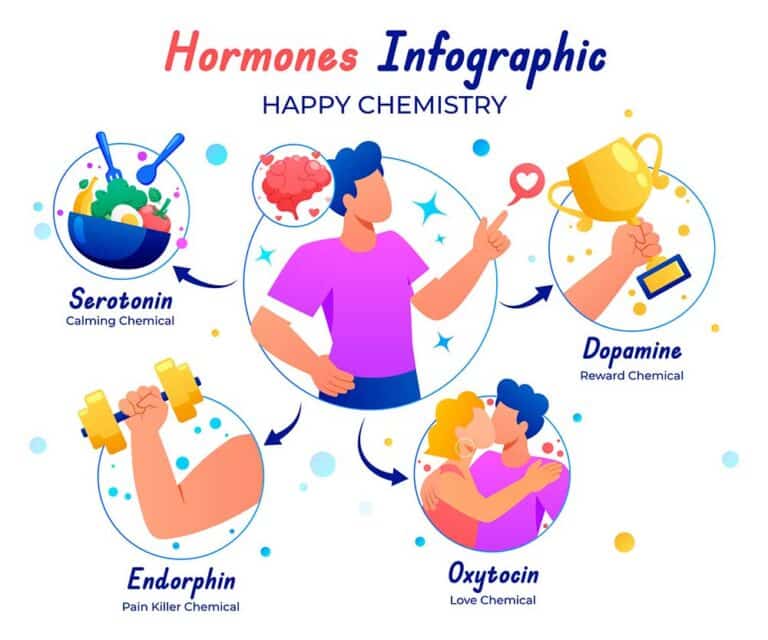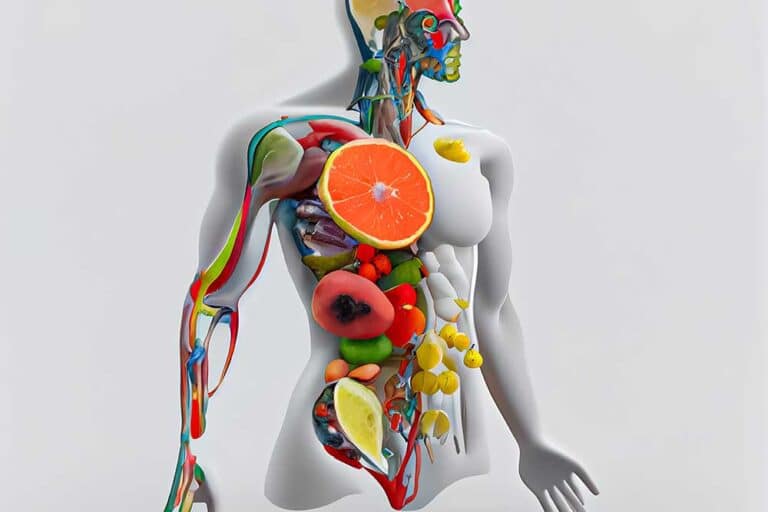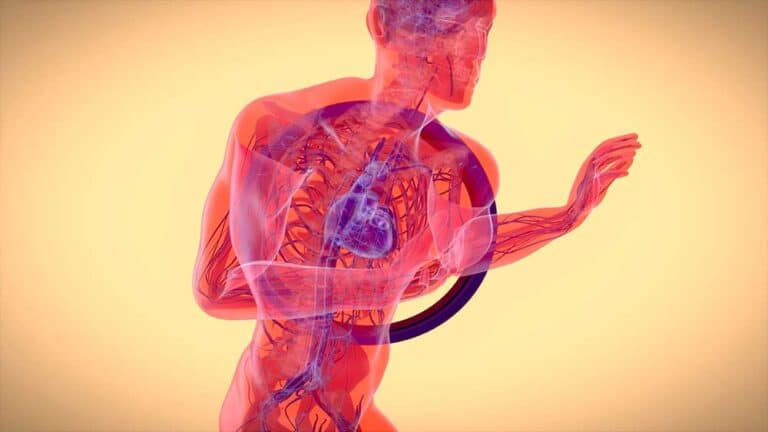Understanding Endocrinology Basics
Endocrinology is the study of hormones and the glands that produce them. It’s a crucial field that helps us understand how the body regulates various functions, maintaining homeostasis.
Role of Hormones in the Body
Hormones are chemical messengers that travel through the bloodstream to tissues and organs. They are responsible for regulating an array of bodily functions. Here’s an overview:
- Metabolism: Hormones like insulin and glucagon from the pancreas regulate glucose levels, ensuring the body has enough energy.
- Energy Levels: Thyroid hormones manage how quickly the body uses energy.
- Reproduction: Hormones from ovaries and testes control reproductive cycles and fertility.
- Growth and Development: Growth hormone from the pituitary gland influences growth in children and maintains tissues in adults.
- Response to Injury and Stress: Cortisol from the adrenal glands moderates the body’s response to stress.
Key Glands in the Endocrine System
The endocrine system is composed of multiple glands, each playing a pivotal role in bodily regulation. Here are the major ones:
| Gland | Location | Main Functions |
|---|---|---|
| Hypothalamus | Brain | Links nervous system to endocrine system; controls pituitary gland functions |
| Pituitary | Brain | Produces hormones that regulate other endocrine glands; “master gland” |
| Thyroid | Neck | Regulates metabolism, energy generation, and growth |
| Parathyroids | Neck | Regulate calcium levels in the blood |
| Pancreas | Abdomen | Produces insulin and glucagon for blood sugar regulation (EPA) |
| Adrenals | Top of kidneys | Produce hormones like cortisol for stress response and regulation of metabolism and immune response (Cleveland Clinic) |
| Ovaries/Testes | Pelvis | Produce sex hormones; regulate reproductive functions (EPA) |
Each of these glands releases specific hormones into the bloodstream, carrying messages to other parts of the body to initiate or regulate physical and behavioral functions. For further reading, check out our article on endocrine system anatomy and physiology.
Hormones and Metabolism
Exploring the intricate relationship between hormones and metabolism reveals how vital the endocrine system is to the body’s overall function.
Hormonal Regulation of Metabolism
Hormones play a crucial role in regulating metabolism, affecting processes such as growth, development, and energy utilization. The endocrine system is responsible for producing and releasing hormones that help convert calories into energy needed for cells and organs. This system impacts heart rate, bone growth, and reproductive functions. According to the Endocrine Society, hormones influence numerous processes including sexual function, reproduction, and mood.
A few of the key hormones involved in metabolic regulation include:
- Insulin: Produced by the pancreas, insulin regulates blood glucose levels.
- Thyroid Hormones: Thyroxine (T4) and triiodothyronine (T3) produced by the thyroid gland control the energy expenditure rate.
- Cortisol: Secreted by the adrenal glands, cortisol regulates metabolism during stress.
For more detailed information on how specific hormones impact metabolism, visit our article on the role of hormones in metabolism.
Impact of Hormone Imbalance on Metabolism
Hormonal imbalances can significantly disrupt metabolism. When glands produce too much or too little of a hormone, it can lead to various endocrine disorders. As Physio-pedia explains, metabolic disorders often arise from improper hormone levels that affect the body’s metabolic functions.
| Hormone | Effect of Imbalance | Potential Disorder |
|---|---|---|
| Insulin | High or low insulin levels | Diabetes Mellitus |
| Thyroid Hormones | Hyperthyroidism or hypothyroidism | Thyroid Disorders |
| Cortisol | Excess cortisol | Cushing’s Syndrome |
| Estrogen/Progesterone | Imbalance in these hormones | Polycystic Ovary Syndrome (PCOS) |
Common symptoms of hormonal imbalances include fatigue, weight gain or loss, muscle weakness, and mood changes. For more on specific conditions, refer to our page on endocrine system diseases and disorders.
Effective diagnosis and treatment of endocrine disorders require specific testing and sometimes referral to an endocrinologist. Treatments often involve medication to correct hormone levels, as outlined by Cleveland Clinic.
For further reading on related topics and in-depth articles about the endocrine system, explore:
- endocrine system and homeostasis
- human body endocrine system
- endocrine glands functions
- endocrinology and metabolism basics
Major Endocrine Glands
The endocrine system is home to several key glands that play a crucial role in regulating bodily functions, particularly metabolism. In this section, we’ll explore the functions of the adrenal glands and the significance of the pancreas in metabolism.
Functions of Adrenal Glands
The adrenal glands, located above each kidney, are composed of the cortex and medulla. These glands produce hormones in response to stress and help regulate blood pressure, glucose metabolism, and the body’s salt and water balance (EPA). The adrenal glands are integral to the endocrine system, which coordinates different functions in the body by releasing hormones into the bloodstream.
Adrenal Gland Functions
| Gland Part | Major Hormones Produced | Functions |
|---|---|---|
| Adrenal Cortex | Cortisol, Aldosterone | Regulates metabolism, immune response, blood pressure, and electrolyte balance |
| Adrenal Medulla | Adrenaline, Noradrenaline | Manages stress response, increases heart rate, and mobilizes energy reserves |
The hypothalamus and pituitary gland play a role in controlling the adrenal glands. The hypothalamus produces hormones that trigger the pituitary gland to release corticotropin, which then stimulates the adrenal glands to produce cortisol and aldosterone. These hormones are essential for metabolism and stress response.
Individuals who have undergone adrenalectomy due to certain conditions need lifelong medication to maintain essential hormone levels for functions related to metabolism and stress response.
Significance of Pancreas in Metabolism
The pancreas is another vital component of the endocrine system, responsible for producing two critical hormones: insulin and glucagon. These hormones regulate the concentration of glucose (sugar) in the blood, underscoring the crucial role of the pancreas in metabolic functions.
Insulin and Glucagon Functions
| Hormone | Function |
|---|---|
| Insulin | Lowers blood glucose levels by facilitating the uptake of glucose into cells |
| Glucagon | Raises blood glucose levels by stimulating the release of glucose from stored glycogen in the liver |
The balance between insulin and glucagon is essential to maintain stable blood glucose levels, which is fundamental for energy production and overall metabolic health. An imbalance in these hormones can lead to disorders such as diabetes, highlighting the significance of the pancreas in metabolic regulation.
Understanding the functions of these major endocrine glands provides insight into the complex interplay of hormones in regulating metabolism. For further information on the anatomical and physiological aspects of the endocrine system, visit our section on endocrine system anatomy and physiology.
Endocrine Disorders Overview
Understanding endocrine disorders is essential for recognizing how the human body endocrine system functions and the potential implications of hormone imbalances on overall health. This section covers common symptoms and the diagnosis and treatment of endocrine disorders.
Common Symptoms of Endocrine Disorders
Endocrine disorders can manifest in various ways, depending on which gland is affected and the hormones involved. The major glands of the endocrine system include the hypothalamus, pituitary gland, thyroid, parathyroids, adrenal glands, pineal gland, reproductive glands (gonads), and pancreas. These glands release hormones that regulate numerous body functions.
Typical Symptoms Include:
- Fatigue: Persistent tiredness and lack of energy.
- Weight changes: Unexplained weight gain or loss.
- Mood swings: Sudden changes in mood, anxiety, or depression.
- Growth issues: Abnormal growth patterns in children.
- Skin changes: Dry skin, rashes, or excessive sweating.
- Reproductive issues: Irregular menstrual cycles or infertility.
| Symptom | Associated Endocrine Gland |
|---|---|
| Fatigue | Adrenal glands, thyroid |
| Weight changes | Thyroid, pancreas |
| Mood swings | Adrenal glands, thyroid |
| Growth issues | Pituitary gland |
| Skin changes | Thyroid, pancreas |
| Reproductive issues | Reproductive glands (gonads) |
Hormones impact many processes such as growth, metabolism, sexual function, reproduction, and mood (Endocrine Society). A disruption in hormone levels can lead to diseases affecting these areas.
Diagnosis and Treatment of Endocrine Disorders
Diagnosing an endocrine disorder is complex due to the variety of symptoms and the need for specific testing to pinpoint hormone imbalances. Referral to an endocrinologist is often necessary for accurate diagnosis.
Common Diagnostic Methods:
- Blood Tests: Measure hormone levels to identify imbalances.
- Imaging Tests: MRI, CT scans to check for tumors or gland abnormalities.
- Urine Tests: Analyze hormone levels over time.
Treatment depends on the specific disorder and can include medications to correct hormone levels, lifestyle changes, or surgery if nodules or tumors are present. Although these growths are rarely cancerous, they can interfere with hormone production (Tampa General Hospital).
| Diagnostic Method | Purpose |
|---|---|
| Blood Tests | Measure hormone levels |
| Imaging Tests | Detect tumors or abnormalities |
| Urine Tests | Monitor hormone levels over time |
Factors influencing endocrine health include puberty, aging, pregnancy, environment, genetics, and medications. Management often involves a multidisciplinary approach to address these complex conditions, emphasizing the importance of collaboration among healthcare providers.
Understanding the common symptoms and diagnostic methods of endocrine disorders can aid in early detection and effective treatment. For more detailed information on specific diseases and their treatments, visit endocrine disorders and treatments and explore how the endocrine system and homeostasis are interconnected.
Importance of Endocrine Specialists
Understanding the crucial role that endocrine specialists play in maintaining health is essential for anyone interested in endocrinology and metabolism functions. These specialists have the expertise to diagnose, treat, and manage conditions related to the endocrine system.
Role of Endocrinologists
An endocrinologist is a healthcare provider with specialized training in managing diseases related to the endocrine system. They focus on understanding how endocrine glands produce the hormones necessary for normal body functions. These professionals can diagnose endocrine conditions, develop comprehensive treatment and management plans, and prescribe medications (Cleveland Clinic).
| Function | Description |
|---|---|
| Diagnosing Conditions | Identifying endocrine disorders through tests and patient history |
| Treatment Planning | Creating personalized management plans involving medications and lifestyle changes |
| Specialty Care | Providing focused care for specific populations, such as pediatric patients under 18 (Cleveland Clinic) |
Conditions often managed by endocrinologists include thyroid disorders, diabetes, and hormonal imbalances affecting metabolism. For more on the role of hormone regulation, visit our section on the role of hormones in metabolism.
Multidisciplinary Approach to Endocrine Care
Endocrinology frequently requires a multidisciplinary approach due to the complex nature of hormone-related conditions. Some endocrine diseases necessitate collaboration between various healthcare providers to ensure comprehensive care. For instance, treating cancers that affect endocrine tissues often involves oncologists alongside endocrinologists (Cleveland Clinic).
| Multidisciplinary Team Members | Role |
|---|---|
| Oncologists | Manage cancer treatments affecting endocrine tissues |
| Primary Care Physicians | Coordinate overall patient health |
| Nutritionists | Assist with dietary plans for managing hormone-related conditions |
| Pediatric Specialists | Focus on endocrine disorders in children (Cleveland Clinic) |
Endocrinologists may also need to address external factors impacting the endocrine system, such as genetics, environmental influences, and lifestyle choices (Endocrine Society). Chemicals known as endocrine disruptors, found in everyday products, can affect hormone production and balance. To learn more about minimizing exposure to such disruptors, explore our section on endocrine system and homeostasis.
The collaboration among various specialists ensures a holistic approach to managing endocrine disorders, helping patients achieve better health outcomes through integrated care. For information about the symptoms and treatments of endocrine disorders, visit our guide on endocrine disorders and treatments.
Endocrine System and Health
Impacts of Hormone Disruptors
Endocrine disruptors are chemicals that can interfere with the human endocrine system at certain doses. These disruptions can cause various health problems, including cancerous tumors, birth defects, and developmental disorders Physio-pedia. Some common sources of endocrine-disrupting chemicals (EDCs) include everyday products like plastics, personal care items, and pesticides (Cleveland Clinic). While it’s impossible to completely avoid EDCs, being aware of where they are found can help reduce exposure.
| Health Issues | Potential Impact |
|---|---|
| Cancer | Breast, Prostate, Thyroid, Other Cancers |
| Developmental Disorders | Cognitive Problems, Learning Disabilities |
| Reproductive Issues | Masculinizing Effects on Females, Feminizing of Males |
These chemicals can also contribute to metabolic disorders, influencing how hormones regulate metabolism. For more on how hormones impact metabolism, refer to our article on role of hormones in metabolism.
Research and Awareness Efforts by NIDDK
The National Institute of Diabetes and Digestive and Kidney Diseases (NIDDK) supports research on various endocrine and metabolic conditions affecting millions of Americans. These include osteoporosis, cystic fibrosis, hypothyroidism, and obesity.
-
Osteoporosis: Affects approximately 53 million people in the U.S., either diagnosed or at risk. It reduces bone strength and increases fracture risk NIDDK.
-
Cystic Fibrosis: More than 30,000 Americans live with this inherited disease, which impacts the flow of salt and water in multiple tissues, complicating management. As the treatment and life expectancy for cystic fibrosis have improved, cystic fibrosis-related diabetes has emerged as a common metabolic issue (NIDDK).
The NIDDK’s commitment to research and awareness aims to enhance the understanding and treatment of these conditions, underpinning the critical link between the endocrine system and overall health. For more on how the endocrine system supports homeostasis, explore our article on endocrine system and homeostasis.
- About the Author
- Latest Posts
Johnnie D. Jackow Sr., the founder and CEO of Total Body Fitness, Worldwide, has a long-standing career in the fitness industry. He began as a certified personal trainer in the mid-90s and soon after authored his first weight loss book in 1998. This led to the launch of Total Body Fitness, Nationwide in the USA at the same time. Johnnie gained recognition as the fitness guru of his time, running infomercials on local TV late at night in Houston, Texas. Over the years, he has helped more than 40,000 individuals from all over the world achieve their health and fitness goals. With over 60,000 hours of documented training in integrative functional medicine, he completed his PhD in human physiology in 2010. His primary objective is to assist people in reaching their health and fitness goals through alternative approaches rather than relying solely on conventional medicine and pharmaceutical drugs. Today, with almost three decades of experience under his belt, Johnnie continues to be a leader in health and fitness.



